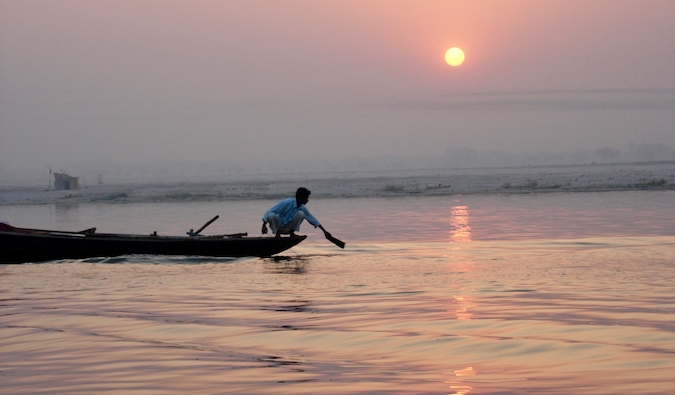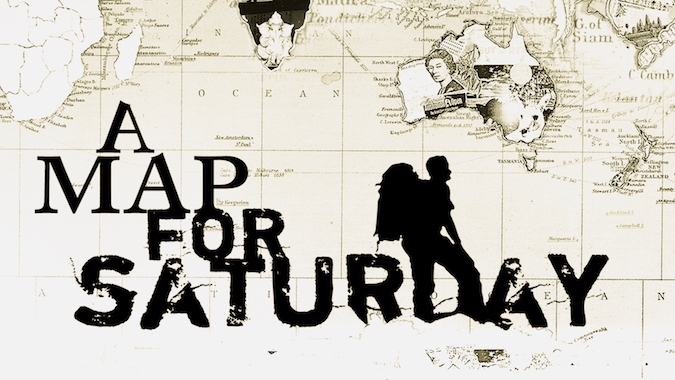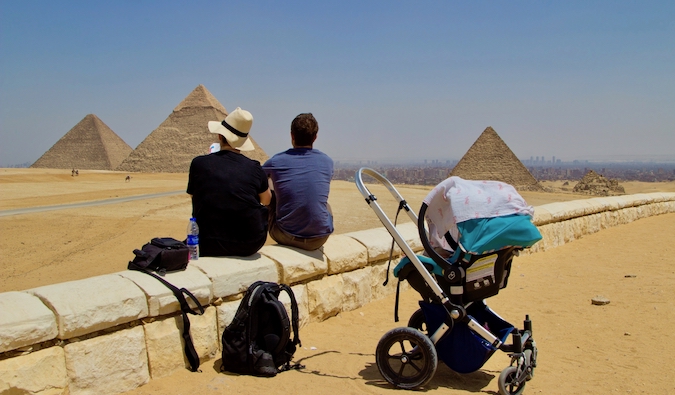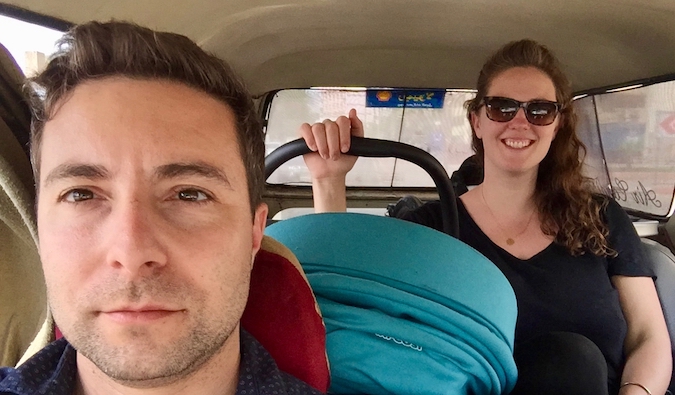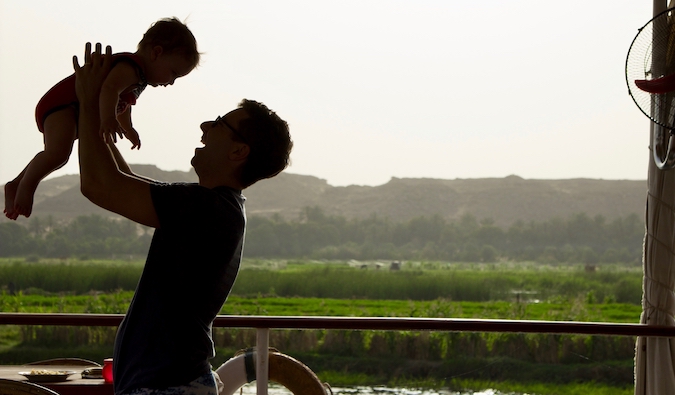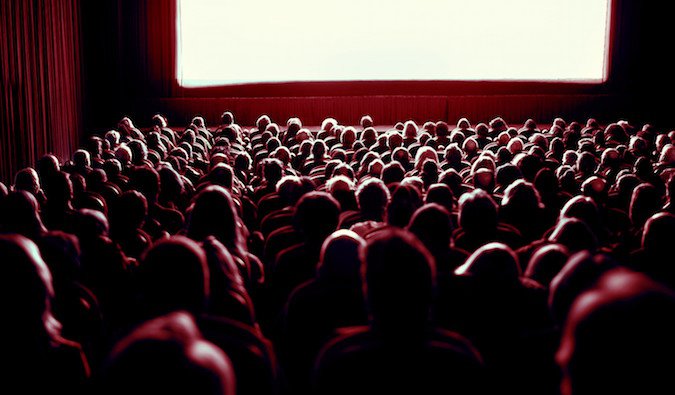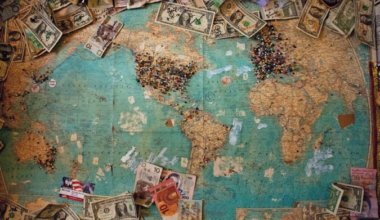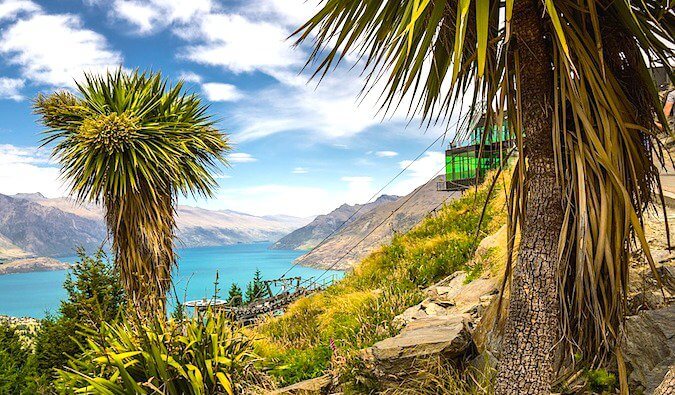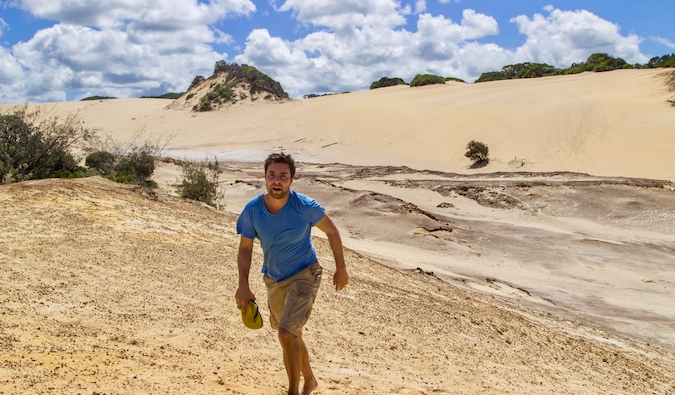
Updated: 8/3/20 | August 3rd, 2020
In 2006, few weeks after I returned from my first round the world trip, I was eating lunch with a friend. “Have you seen A Map for Saturday?” she asked me.
“No, what is it?” I responded.
“It’s the world’s best travel movie. I think you can go to the website and buy it directly. It’s a documentary.”
I went home and immediately ordered it online.
The movie follows the 11 month trip of Brook Silva Braga from when he quits his job to when he returns home. It was — and still is — the best movie I’ve ever seen about long term travel. No film has captured the ups, downs, and life of a backpacker so beautifully.
It nails the why of backpacking. From the desire to experience something new to the lulls in the road to the five-minute friends who become our life long buddies to the desire to run away again when we get home — this movie gets it all.
Since that first viewing, I’ve shared this movie with friends, gifted it to travelers, and have lost track of how often I’ve watched it. I watched it – and cried – on my “last day” of travel back in 2013 when I thought my travels were over.
The movie was released exactly ten years ago and so today I sit down with Brook (who I now call a friend) to talk about the movie that remains on the top of everyone’s best movie list and the impact it’s had.
Nomadic Matt: As a refresher, tell everyone about yourself!
Brook: Well, I’m a guy who quit his job to travel the world for a year — which, obviously, a lot of people have done. But I also brought along a video camera and made a documentary about backpacking culture called A Map for Saturday. I met travelers in Australia, Asia, Europe, and South America and tried to capture what it was like for all of us out on the road.
I got home broke, moved into my parents’ house, and edited the footage together. Then — in a stroke of great luck — MTV bought it! I think the fact I had traveled alone for a year gave the film a kind of authenticity. And I was also fortunate to have a background in TV (I had been a producer with HBO Sports beforehand).
Backpacking had trained me to live cheaply, so I was able to take the MTV money and travel on and off for several more years. I went overland across Africa north to south and China east to west. I made two more documentaries during those years and then settled into a somewhat more traditional life back in the US.
What made you decide to quit your job all those years ago?
When I was 24, HBO sent me to the Philippines to do a story on Manny Pacquiao. I added a short side trip to Thailand and met these two guys from Belfast on a round-the-world trip. The idea of that totally captivated me. I had never heard of such a thing.
After a week of traveling with them, I decided I wanted to do a big trip too and that now was probably the best time. So I went back home and started planning. I left eight months later. (Matt says: Thailand is where I met backpackers who inspired me to do the same thing. There’s just something about that place!)
How did you save for your first trip?
I just stopped spending money. I never took a cab or went to a nice dinner and, when I went out it, was somewhere cheap. And, to be totally honest, I had a pretty good-paying job so with some hardcore scrimping I was able to get my savings up to the $20,000 USD I needed for the trip pretty quickly.
I also had a bunch of airline miles from work travel and used them all — 140,000 points and miles — for a round-the-world ticket from Delta. That really helped make it affordable.
How did people react? Back in 2005, I was thinking about traveling too, and the idea of quitting your job was super alien. Most people in my life didn’t know what to make of it. What did people in your life say?
Yeah, I think the main response was confusion. I was a very driven 25-year-old, and people saw that as career ambition. I had been pretty successful for my age and worked hard to get there. So why was I walking away from that?
What they didn’t see was that my ambition was about living an exciting and full life, not just having a fancy job. So from my perspective, traveling the world was just an extension of that “ambition.”
But my parents were very supportive. They had both traveled a lot when they were young, and I think they thought I was a bit too career-focused before I left.
What made you want to film your trip?
Well, making a documentary helped ease the sense that I was throwing away my career. I knew I would be in some really cool places; tying them together with one project was very exciting. I brainstormed lots of documentary ideas and never came up with anything great, so I ended up just filming my trip and the people I met, and that became the film.
Do you wish you did your first trip differently?
I really don’t. It was great. My current big-trip dreams are a bit different: I’d like to go to a series of places for a month and get to know each one before moving on.
So it’s the ten-year anniversary of A Map for Saturday. How are you feeling about it?
With time, all the rough edges have gotten worn off the trip and it’s just become a kind of magical memory. The days when I was lonely or bored or stuck in some new city and couldn’t find a room have all sort of vanished. I just remember it as this amazing ride, where I met so many people and stretched myself into becoming someone new.
It really was life-changing in the sense that my life priorities were reordered. I became less career-focused and left a path that would have been much more corporate. I can sort of picture a richer, less-happy version of myself that would exist if I hadn’t taken that trip.
And I think that shift in values even changed who I married: my wife is much more aligned with the new me than the old one.
As for the movie itself, I end up watching it every couple of years and I’m still proud of it. It still feels like it works as a story. Before I left on my trip, I rented the classic surfer-travel movie The Endless Summer, and I remember thinking it was both good and really dated, and I remember also thinking, “One day, the thing I’m about to make will be dated and that will be weird and bad.”
But there’s something nice about the way it has aged. It represents that moment in time pretty well I think.
Did you think the movie would have such an impact as it did? It’s one of the best travel movies out there. I don’t know anyone who doesn’t like it.
At the time, I had no idea if anyone would ever see it. If it hadn’t gotten the boost of airing on MTV and National Geographic, I doubt anyone would have known to illegally download it…I mean, stream it on Amazon.
Not knowing if something will be seen is a great motivator for making it good. I spent a lot of time making a whole section on New Zealand that I completely cut. I knew if the entire film wasn’t good, no one would see any of it.
So that made the editing process pretty ruthless — I was so focused on making the film succeed. And of course, I worried it would suck.
But for years now, the response has been super positive. I’ve made other documentaries since, written a book, done a lot of TV, but A Map for Saturday is still the thing people email me and want to talk about.
Why do think people enjoy the movie so much?
I think because it was made a bit differently. I was just alone with a backpack, and so I started telling the story of what that felt like. Most travel content is afraid to be about the experience of traveling — it ends up being about attractions and destinations. A
nd that’s like making a romantic comedy that focuses on the meal the couple is eating, rather than how they feel about being on the date. In A Map for Saturday, the locations are mainly backdrops to the action, rather than the focus of the story.
I wrote and edited most of the film while I was still living out of a backpack, and that gave me a perspective that I couldn’t have had even six months after returning home. My only real agenda was to be true to the experience even when that played against expectations.
So if I was bored or tired, I was going to say so. I think being honest about the less romantic parts of travel ended up being one of the things backpackers related to.
Finally, I think the ultimate theme of the movie is the brevity of youth — and that’s a very powerful theme for a story. To use a cheesy phrase of the moment, you’re watching people “live their best life,” and as you watch the joy and surprises and disappointments involved in that, you can’t help but reflect on how you’re living your own life and how you might wish you were living it differently.
Then the end of the trip comes as a kind of death that drives that theme home.
How have your travels changed over the years?
It’s been a while since I traveled for more than a month so the nature of the trips is different. You don’t get that feeling of living on the road. You don’t need to be quite as careful with your spending. I rarely travel alone now (it’s usually with my wife), and that naturally leads to meeting fewer people because you don’t have that desperate desire to not be alone.
So, overall, travel is easier, which is mainly a good thing, but sometimes harder travel can be more rewarding.
What have you noticed about how people travel these days?
The big change is technology. Everyone has a cell phone, and it’s much easier to navigate, to book places to stay. Just like at home, it’s also easier to lose yourself in technology and not engage with the place you’re in.
You can just chat with friends on your phone rather than making new ones. People joke that every episode of Seinfeld would be 30 seconds long if only they had cell phones to solve their problems — that might be true of A Map for Saturday too, which is a bit sad, because getting out of problems is half the fun of traveling.
Do you still keep in touch with anyone from the movie? I always wonder what everyone got up to!
I do. Over the years I’ve met up with Jens, Sabrina, Christian, Ella, Kate, Lonnie — some multiple times. Most of them are married and/or have kids now. Facebook was just starting in 2005 so I didn’t often connect with people on it.
At first, that was good, because it forced us to actually write emails to each other, but over the years that has stopped and I’ve lost touch with a bunch of people.
You’re now married with a kid. How is married life treating you? And how has that changed your travels?
Married life and dad life are great! We just returned from our first big trip together (three weeks in London and Egypt) and it was amazing.
Everything seems fresh and exciting when you bring a kid along. It’s like doing it for the first time in a way.
And, then in Egypt, everyone loves kids, so strangers were constantly coming up to him. A guard in one of the pharaoh’s tombs got on the floor and they crawled around together for 15 minutes. It was nuts. Traveling with kids is obviously a challenge but it also creates all these experiences you wouldn’t have otherwise.
Long trips seem a lot more common nowadays. Why do you think that is?
I’m not convinced they’re more common; I think they may just be more visible. I saw this terrible editorial recently, criticizing the “trend” of people taking gap years in their late 20s. Those are the people who have always taken gap years! What 18-year-old actually has enough money to travel for a year?
If they are becoming more common, that’s a good thing. Long trips force you to live simply and have a lot of contact with local people, and I think that’s really valuable. I can’t count how many times over the years some professional or personal question has come up about a foreign place, and the fact I had spent time there allowed me to understand what was going on much better than someone who just read a story about it from their desk.
A Map for Saturday is now available on Amazon! Here’s the trailer (excuse the low quality. It’s ten years old!):
I highly recommend you watch this movie. Whenever I do a “best travel movie” list, this movie is always number one!
Now that you can not only buy it but stream it from Amazon. You totally should. This movie makes me cry (in a good way) and always refuels my wanderlust. Just watching the trailer makes me want to get away. I can’t recommend it enough!
Book Your Trip: Logistical Tips and Tricks
Book Your Flight
Find a cheap flight by using Skyscanner. It’s my favorite search engine because it searches websites and airlines around the globe so you always know no stone is being left unturned.
Book Your Accommodation
You can book your hostel with Hostelworld. If you want to stay somewhere other than a hostel, use Booking.com as it consistently returns the cheapest rates for guesthouses and hotels.
Don’t Forget Travel Insurance
Travel insurance will protect you against illness, injury, theft, and cancellations. It’s comprehensive protection in case anything goes wrong. I never go on a trip without it as I’ve had to use it many times in the past. My favorite companies that offer the best service and value are:
- SafetyWing (best for everyone)
- Insure My Trip (for those 70 and over)
- Medjet (for additional evacuation coverage)
Want to Travel for Free?
Travel credit cards allow you to earn points that can be redeemed for free flights and accommodation — all without any extra spending. Check out my guide to picking the right card and my current favorites to get started and see the latest best deals.
Need Help Finding Activities for Your Trip?
Get Your Guide is a huge online marketplace where you can find cool walking tours, fun excursions, skip-the-line tickets, private guides, and more.
Ready to Book Your Trip?
Check out my resource page for the best companies to use when you travel. I list all the ones I use when I travel. They are the best in class and you can’t go wrong using them on your trip.
